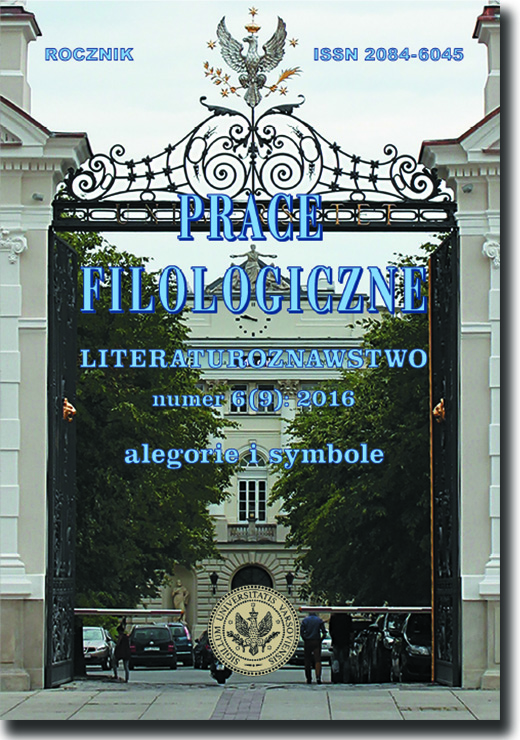Krzyż – okręt – wóz. O alegorii eschatologicznej
Cross - ship - carriage. On eschatological allegory
Author(s): Dariusz SewerynSubject(s): Literary Texts, Studies of Literature
Published by: Wydział Polonistyki Uniwersytetu Warszawskiego
Keywords: Cyprian Norwid; symbolika krzyża; skandynawskie rytuały pogrzebowe; Cyprian Norwid; the symbolism of cross; Scandinavian funeral rites
Summary/Abstract: The opposition of symbol and allegory in the Romantic aesthetic-philosophical discourse can be considered as a special case of the fundamental antithesis, emphasized by Tzvetan Todorov, of symbolic representations and sign representations. On the other hand, the literary practice of Romanticism by no means renounces allegorical renderings. Before Norwid’s connections with Counter-Reformation emblematics finally reach a competent description, even a single example seems worth presenting. Even if a strict equivalent of intersemioticality, which appears in emblems, does not exist in the case in question (all we have is verbal text), a good equivalent of emblematic {icon} can be found on the level of poetic imaging, while the homologue of the {inscription} emerges as a figure of words formed by two final verse line endings. Example from Norwid ({Cross and Child}) leads to the problem of semiosis of the Cross, which is not always adequately modelled by contemporary scholars. In turn, the Christian symbolism of the Cross, covered in ethnological terms, opens the perspective of comparative study of the changes in semiotic structures in the sphere of eschatological representations. Interesting examples of such representations are provided by archaeological evidence. In the cases mentioned in the article, a diachronic relationship between symbol and allegory can be seen: allegory emerges as a result of decomposition of the symbolic structures into the sign structures.
Journal: Prace Filologiczne. Literaturoznawstwo [PFLIT]
- Issue Year: 2016
- Issue No: 6 (9)
- Page Range: 241-250
- Page Count: 10
- Language: Polish

